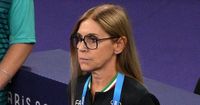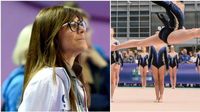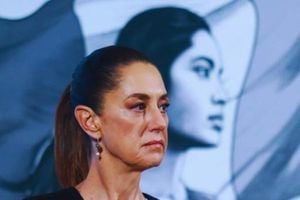Emanuela Maccarani, a prominent figure in Italian rhythmic gymnastics, has been officially removed from her position as the technical director of the national team. This decision, announced by the new president of the Italian Gymnastics Federation, Andrea Facci, marks a significant shift in leadership after Maccarani's three-decade tenure, during which she led the team to over 200 medals, including four Olympic ones.
The Federal Council unanimously voted for Maccarani's dismissal on March 26, 2025, citing the need for a new direction in the organization. Facci stated, "We believe that the cycle is over, and we thank Emanuela for her successes, but now we look to the future." This decision comes amidst ongoing legal troubles for Maccarani, who is awaiting trial on charges of mistreatment following accusations from former gymnasts Anna Basta and Nina Corradini, who claimed they suffered psychological abuse under her coaching.
Maccarani's removal is not merely a consequence of these allegations, as Facci emphasized that the decision was made independently of the ongoing legal issues. However, the timing of the dismissal, just weeks after a court in Monza ordered her compulsory indictment, raises questions about the impact of these allegations on the federation's leadership choices.
Following the unanimous decision, Maccarani was informed via email on the morning of March 26 and was instructed to leave the Desio academy by midnight the same day. Facci will take over the technical direction on an interim basis until a new head coach is appointed by June 30, 2025.
Facci, who is 40 years old and the youngest president in the federation's history, expressed his intent to introduce a new model of work for gymnastics. He stated, "I want to implement a shared work approach, moving away from the idea of a single person in charge." This shift reflects a broader desire to foster a more collaborative environment within the federation, particularly as nearly 90% of its members are under 18 years old.
The new board of the federation, also presented on March 26, includes Giandomenico Drago as the new secretary, Franco Mantero as vice president, and Fabrizia D’Ottavio, an Olympic silver medalist from Athens 2004, as another vice president. D’Ottavio, who has a history with Maccarani, expressed discomfort with the situation, stating, "I have lived with discomfort and share the idea of not focusing solely on results but on what lies behind them."
Maccarani's dismissal has been met with shock from her athletes. She revealed that many of the gymnasts were in tears upon hearing the news, which they learned through social media. Maccarani herself stated, "I found out from social media. I had just left the gym to eat, and when I returned, I discovered the dismissal letter in my mail. Despite my contract stipulating a month’s notice, I was told that, given the sensitivity of the situation, I would not be allowed back in the gym starting tomorrow."
This abrupt change has left many athletes feeling destabilized just a week before their first international competition with a new team. Martina Centofanti, the newly appointed captain of the rhythmic gymnastics team, voiced the concerns of her teammates, stating, "We learned today without any prior notice from any federation member that our coach would no longer train us starting tomorrow. This situation is even more destabilizing for us athletes and for the overall planning of the national team."
The federation is also facing scrutiny regarding its handling of past allegations against Maccarani. In 2022, Basta and Corradini accused Maccarani of psychological abuse, leading to an investigation that initially resulted in a warning for Maccarani but no further action against her assistant, Olga Tishina. However, the ordinary justice system has since requested a trial, which has reopened discussions about the federation's internal issues.
Facci acknowledged the challenges faced by the federation over the past two years, stating, "The environment has been significantly affected by the problems in rhythmic gymnastics. I believe we have managed the situation with an eye toward the Olympics, prolonging the same roles for too long. I have found myself dealing with issues that have unfortunately come to light."
As the federation moves forward, it aims to address not only the ongoing legal issues but also to improve the overall environment for young athletes. Facci remarked, "We do not have easy recipes, but we want to work hard to solve the problem of young girls or adolescents leaving school to train full-time." This commitment to athlete welfare and a new collaborative approach may signal a turning point for the federation.
While the search for Maccarani's permanent successor continues, the federation is preparing to launch a call for applications for a new federal prosecutor following the removal of Michele Rossetti, who faced backlash for his derogatory remarks about the gymnasts who had come forward with allegations against Maccarani.
In the coming weeks, the federation will need to navigate the complexities of its leadership transition while addressing the concerns of its athletes and the broader gymnastics community. The outcome of Maccarani's legal battles and the federation's response to these challenges will likely shape the future of rhythmic gymnastics in Italy.










